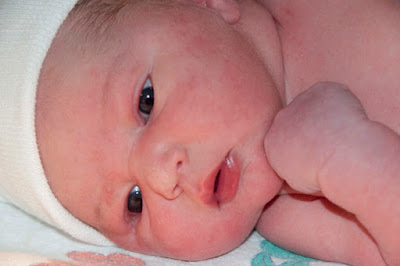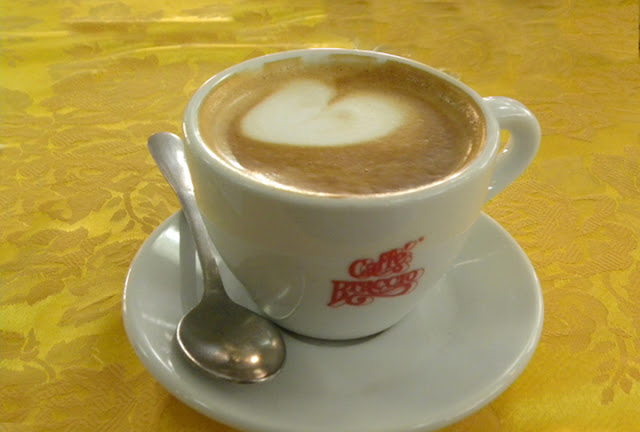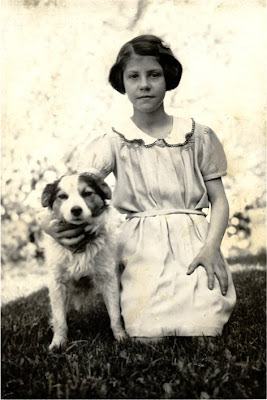Don't You Wonder Sometimes?
Don't you wonder sometimes
about those people up your family tree?
 This young woman, Wilhelmina Blomgren,
This young woman, Wilhelmina Blomgren,was my great-grandmother.
She was almost 81 when I was born
and died in her 90s when I was a teen.
She lived in the town where my mother grew up.
a place where we visited a few times a year.
But as for my great-grandmother,
I really have few memories of her.
Except that her hair was white and thin,
she wore old lady shoes,
she wrote phonetically spelled letters to my mother,
giving away the fact that she'd come to the U.S.
as a young woman and gave up speaking her native tongue
to become an American.
Oh -- and the place that she lived always smelled like coffee.
We went to her funeral.
I don't remember the funeral particularly
but I remember the wake that followed,
primarily because my grandmother's elbow got bumped
when she was carrying a lemon merengue pie.
I happened to be next to her
and wore the pie on my head.
I was the only person who didn't think it was funny.
But Wilhemina fascinates me now.
When she was just a young woman,
her uneducated, working class parents
squirreled away money and sent her
to live in the United States, as they had
her older brother and as they later would
a younger sister and younger brother.
Why did they feel compelled to do that,
knowing they might never see their children again?
Wilhelmina was eighteen in 1886 when she made the journey.
She could only afford passage in steerage.
She landed in a strange city where she knew no one.
She spoke only Swedish.
Was she afraid? Excited?
Was her older brother there to meet her,
or did someone send instructions about
the next step?
She made her way to Nebraska, where her paternal uncle lived
and got a job as a governess for a family.
She learned to speak a new language,
the language spoken by her employers,
which she assumed was English,
but which turned out to be Dutch.
So she started over,
learning English, becoming American.
In about 1891
she married a young immigrant from Norway.
They lived in Walla Walla, Washington.
They had three children in just over six years
and then, before she turned 30,
her young husband died of tuberculosis.
She continued to live on the homestead land
they were working. Right around the time her husband died,
her middle child died too. She had no time for grieving
because she had two small children to support.
So she cooked in a cook wagon that fed laborers
harvesting crops in the area.
 This photograph was taken a few years after that time,
This photograph was taken a few years after that time,obviously, since it's machine-powered.
There she met her second husband, another Swede,
my great-grandfather. He had homestead land
nearby in Oregon, but worked the harvest in Walla Walla
so that he could earn money to buy supplies, materials, and food.
They lived for a while on her homestead land
and had the first of their five children (my grandfather).
She became a citizen in 1902
and proved up her land claim.
And then they packed up the family
and all their belongings in horse drawn wagons
and made the trip through the Blue Mountains
to Samuel's land in Wallowa County, Oregon.
There, they made a home.
Did they sell her land?
How did she feel about leaving the place she knew as home,
a place where she'd buried a child?
 Wilhelmina and Samuel Miller are in the back seat with Oscar
Wilhelmina and Samuel Miller are in the back seat with Oscarand Herbert; her son John Nelson is behind the wheel,
and my grandfather Elmer is holding Stanley.
Judging from the boys' appearance, I'd guess this was taken
about 1915. Don't know where the girls were -
Mamie was likely married already,
but Mabel should have been still at home.
Minnie was widowed again before she turned 50,
in the mid-1920s. She never remarried.
She lived through the Depression,
the Second World War,
up through the nascent civil rights movement,
and the early glimmerings of the women's movement.
What must this farm girl from a village
called Algutsboda in Kronoberg County, Sweden
have thought of her life?



Comments
And I must say that you've done it again. Your post correlates with my thoughts. Just yesterday, I was at an antique shop going through old photos and talking about my great-grandmother to the shop owner.
Did she miss her family? Always.
Meri, this is a beautiful story; you ought to write a whole series of these portraits lest we all forget our roots.
Michelle: If I'm ever in the courthouse there again, I'll check the marriage records for 1890 - 91 to see if I can find her first marriage record (I found the one for her marriage to Samuel, my ggf)and check the land records to see what happened to the land. It's near where L'Ecole No. 41 winery is.
Lakeviewer: I have photos and stories about other twigs and branches in my trees. Some are fascinating -- maybe I'll do just that from time to time.
I loved it...a great story Meri...
especially after recently spending time thinking about my grandmother and great aunt Winnie...
weren't they so hardy and resilient..because they had no other choice...I wonder if we could do the same...we are pretty soft and pampered now..and so self indulgent...it really was a matter of survival, something few of us ever have to consider today...
thanks for that snippet of history and resourcefulness...
oh and I see a resemblance - do you?
Happy days
I feel like a big part of who I am as a woman is Danish...my mother was raised by a woman who was raised by a woman who lived in Denmark who was raised by a Danish women...you know all the way back...In fact some the bad patterns is from Denmark too...working that out now..Women who weren't honored as woman and tried to be like men and didn't know who they really were...and passive men as women took over...anyway very interesting patterns that happen...
http://deirdradoan.blogspot.com/2008_03_01_archive.html
http://deirdradoan.blogspot.com/2008/04/painting-in-denmark.html